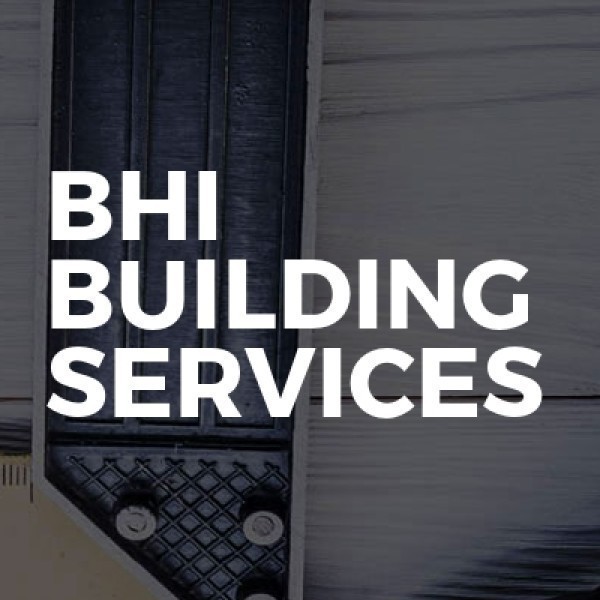Loft Conversions in Ryde
Welcome to CONMAX, your go-to experts for all your building and renovation needs in Warblington and across Hampshire. As a dedicated and... read more »
Welcome to N C Contractors & Sons Ltd, your trusted partner for all building and renovation needs in Burridge and across Hampsh... read more »
Welcome to BHI Building Services Ltd, your premier choice for top-notch building solutions in Drayton and across Hampshire. Specialising... read more »
Mainfix Interiors Ltd, nestled in the heart of Woodcot, is your go-to expert for all things construction and renovation... read more »
Welcome to JE Property Improvement LTD, your trusted partner for all your home improvement needs in Stubbington and across Hampshire. As... read more »
Welcome to Melport, your go-to solution for all construction and renovation needs in Forton and across Hampshire. As a Forton-based busin... read more »
Welcome to Milwalt Property Services, your trusted partner for all property maintenance and improvement needs in Horndean and throughout... read more »
Welcome to S.S.T Brickwork & Property Maintenance, your go-to experts for all building and property maintenance needs in the vibrant city... read more »
Welcome to NUTBOURNE Construction Ltd, your trusted partner for exceptional building services in Nutbourne and across West Sussex. As a p... read more »
Welcome to Sterling Construction Group LTD, your premier choice for top-notch building services in Swanwick and throughout Hampshire. As... read more »
Stanley Building: Your Trusted Builders in Lovedean and Hampshire
Welcome to Stanley Building, your go-to expert... read more »
Welcome to Slate Insulations Limited, your go-to expe... read more »
Welcome t... read more »
Welcome to DJB Home Improvements Ltd, your premier ch... read more »
Welcome to Project Solutions Design & Build Ltd, your... read more »
Came... read more »
B Sure Trade Services is a reputable... read more »
Welcome to Legendary Construction, your go-to experts... read more »
Search Loft Conversions in places nearby
Understanding Loft Conversions in Ryde
Loft conversions in Ryde have become increasingly popular as homeowners seek to maximise their living space without the hassle of moving. This charming town on the Isle of Wight offers a unique blend of coastal beauty and historical charm, making it an ideal location for enhancing your home. In this article, we'll explore the ins and outs of loft conversions, providing you with a comprehensive guide to transforming your attic into a functional and stylish space.
The Benefits of Loft Conversions
Loft conversions offer a myriad of benefits, making them an attractive option for homeowners in Ryde. Firstly, they provide additional living space, which can be used for various purposes such as a bedroom, office, or playroom. This extra space can significantly enhance your home's functionality and comfort.
Moreover, loft conversions can increase the value of your property. By adding an extra room, you can potentially boost your home's market value, making it a wise investment. Additionally, loft conversions are often more cost-effective than building an extension, as they utilise existing space within your home.
Another advantage is the opportunity to customise the space to suit your needs and style. Whether you prefer a modern, minimalist design or a cosy, traditional look, a loft conversion allows you to create a space that reflects your personality and lifestyle.
Types of Loft Conversions
There are several types of loft conversions to consider, each with its own set of advantages and considerations. The most common types include:
- Dormer Loft Conversion: This type involves extending the existing roof to create additional headroom and floor space. Dormer conversions are popular due to their versatility and ability to accommodate various room layouts.
- Mansard Loft Conversion: Mansard conversions involve altering the roof structure to create a flat roof with steeply sloping sides. This type is ideal for maximising space and is often used in terraced houses.
- Hip to Gable Loft Conversion: This conversion is suitable for properties with a hipped roof. It involves extending the roof's ridge to create a vertical gable wall, providing more space and headroom.
- Velux Loft Conversion: Also known as a roof light conversion, this type involves installing Velux windows into the existing roof structure. It's a cost-effective option that doesn't require significant structural changes.
Planning Permission and Building Regulations
Before embarking on a loft conversion in Ryde, it's essential to understand the planning permission and building regulations requirements. In many cases, loft conversions fall under permitted development rights, meaning you won't need planning permission. However, there are exceptions, particularly if your property is in a conservation area or if the conversion involves significant structural changes.
Building regulations approval is necessary for all loft conversions to ensure the work meets safety and quality standards. This includes aspects such as structural integrity, fire safety, insulation, and ventilation. It's advisable to consult with a professional architect or builder to navigate these requirements effectively.
Choosing the Right Loft Conversion Specialist
Selecting the right specialist for your loft conversion is crucial to ensuring a successful project. Look for professionals with experience in loft conversions and a solid reputation in Ryde. It's beneficial to review their portfolio and speak with previous clients to gauge their expertise and reliability.
Additionally, ensure that the specialist is fully insured and accredited by relevant industry bodies. This provides peace of mind and protection in case of any issues during the project.
Designing Your Loft Conversion
The design phase is an exciting part of the loft conversion process, allowing you to bring your vision to life. Consider the purpose of the space and how it will be used. For instance, if you're creating a bedroom, you'll need to think about storage solutions and lighting.
Work closely with your architect or designer to create a layout that maximises the available space and complements your home's existing style. Don't forget to incorporate practical elements such as insulation and heating to ensure the space is comfortable year-round.
Cost Considerations
The cost of a loft conversion in Ryde can vary depending on several factors, including the type of conversion, the size of the space, and the materials used. On average, a basic loft conversion can cost between £20,000 and £40,000, while more complex projects may exceed this range.
It's essential to set a realistic budget and factor in additional costs such as planning fees, building regulations approval, and interior furnishings. Obtaining multiple quotes from different specialists can help you find the best value for your investment.
Maximising Space and Light
One of the key challenges of a loft conversion is maximising space and light. Clever design techniques can help you achieve a bright and airy atmosphere. Consider incorporating skylights or dormer windows to flood the space with natural light.
Utilising built-in storage solutions can also help you make the most of the available space. Custom shelving, wardrobes, and under-eaves storage can keep the area organised and clutter-free.
Insulation and Energy Efficiency
Proper insulation is crucial for ensuring your loft conversion is energy-efficient and comfortable. Insulating the roof, walls, and floors can help regulate temperature and reduce energy bills. Consider using eco-friendly insulation materials for a sustainable approach.
Additionally, installing energy-efficient windows and lighting can further enhance the space's efficiency. LED lighting and double-glazed windows are excellent options for reducing energy consumption.
Safety and Accessibility
Safety and accessibility are paramount when planning a loft conversion. Ensure the design includes a safe and sturdy staircase that complies with building regulations. The staircase should be well-lit and easy to navigate.
Fire safety measures are also essential. This includes installing smoke alarms, fire-resistant doors, and ensuring there are adequate escape routes in case of an emergency.
Decorating Your New Space
Once the structural work is complete, it's time to decorate your new loft space. Choose a colour scheme that complements the rest of your home and reflects your personal style. Light, neutral colours can create a sense of spaciousness, while bold accents can add character.
Consider the furniture and accessories that will enhance the functionality and aesthetics of the space. Multi-functional furniture, such as sofa beds or foldable desks, can be particularly useful in smaller lofts.
Maintaining Your Loft Conversion
Regular maintenance is essential to keep your loft conversion in top condition. Check for any signs of wear and tear, such as leaks or cracks, and address them promptly to prevent further damage.
Ensure that the space is well-ventilated to prevent condensation and mould growth. Regularly clean and inspect windows, skylights, and ventilation systems to ensure they are functioning correctly.
Common Challenges and Solutions
Loft conversions can present various challenges, but with careful planning and expert guidance, these can be overcome. One common issue is limited headroom, which can be addressed by opting for a dormer or mansard conversion.
Another challenge is ensuring adequate natural light. Installing additional windows or skylights can help brighten the space. If privacy is a concern, consider using frosted glass or blinds.
Case Studies: Successful Loft Conversions in Ryde
Exploring case studies of successful loft conversions in Ryde can provide inspiration and insight into the possibilities for your own project. Many homeowners have transformed their attics into stunning living spaces, from cosy bedrooms to stylish home offices.
These case studies highlight the importance of working with experienced professionals and the impact of thoughtful design on the overall success of a loft conversion.
Frequently Asked Questions
- Do I need planning permission for a loft conversion in Ryde? In most cases, loft conversions fall under permitted development rights, but it's essential to check with your local council.
- How long does a loft conversion take? The duration can vary, but most loft conversions take between 6 to 12 weeks to complete.
- Can all lofts be converted? Not all lofts are suitable for conversion. Factors such as headroom, roof structure, and access need to be considered.
- What is the best type of loft conversion? The best type depends on your property's structure and your specific needs. Consulting with a specialist can help determine the most suitable option.
- How much does a loft conversion cost? Costs can vary widely, but a basic conversion typically ranges from £20,000 to £40,000.
- Will a loft conversion add value to my home? Yes, a well-executed loft conversion can increase your property's value by up to 20%.
Loft conversions in Ryde offer a fantastic opportunity to enhance your home and lifestyle. With careful planning, expert guidance, and a touch of creativity, you can transform your attic into a beautiful and functional space that meets your needs and adds value to your property.
Send a message
















